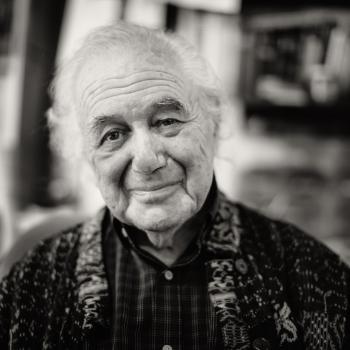
There’s a Pew Research Center study that came out earlier this year that showed an increasing number of Americans no longer believe in God. That may come as no surprise—but what might surprise you is just how many do still believe, if not in God, in some other spiritual force or supreme being. The numbers look like this:
- 56% of Americans said they believe in God “as described in the Bible”
- 34% of Americans say they DON’T believe in the God of the Bible but DO believe there is some other higher power or spiritual force in the universe
- 10% do not believe in God or any higher power or spiritual force
So what’s this “greater spiritual force” or higher power that a third of all Americans believe in? And how does it differ from the God found in the Bible? Here’s a little more background via the Pew study:
Americans who say they believe in God “as described in the Bible” generally envision an all-powerful, all-knowing, loving deity who determines most or all of what happens in their lives. By contrast, people who say they believe in a “higher power or spiritual force” – but not in God as described in the Bible – are much less likely to believe in a deity who is omnipotent, omniscient, benevolent and active in human affairs.
Edison, Emerson and the American belief in a higher power.
The great American inventor Thomas Edison believed there was a great natural force that could be tapped into for wisdom and ideas. When Edison needed to do some serious thinking, he would retreat to his basement, a place without sound and light. There, he would “receive” his ideas, much like a radio picking up the electromagnetic signal of a distant station.
Like Mark Twain before him, Edison expressed serious concerns about organized religion. In fact, atheists often claim him as one of their own. But the truth is Edison believed in a higher power, which he alternately referred to as the Infinite Intelligence or the Supreme Intelligence. As the website Philosophies of Men points out:
Edison specifically states that he believes in a Supreme Intelligence, but not the god of modern religions. Nature was Edison’s god, and he considered it a sentient force, an Intelligence. He was a pantheist, believing that everything is part of an all-encompassing immanent God, or that the Universe and God are identical.
When a newspaper article misread his belief in God, Edison cleared the air by stating “What you call God, I call Nature, the Supreme Intelligence that rules matter”. He believed this intelligence pervaded the whole universe. In his words:
I know this world is ruled by Infinite Intelligence. It required Infinite Intelligence to create it and it requires Infinite Intelligence to keep it on its course. Everything that surrounds us, everything that exists, proves that there are Infinite Laws behind it. There can be no denying this fact. It is mathematical in its precision.
Edison’s belief in a direct connection between God and Nature was shared by Ralph Waldo Emerson. Since Emerson’s writings can be dense, I have taken the liberty to edit the following passage from his classic book Nature, replacing more obscure words and phrases with modern language. For Emerson, like Edison, God and nature were inseparable and he writes of the supreme power found there:
In the woods, a man casts off his years, like a snake sheds its skin. No matter his age, he is always a child. Within these plantations of God, holiness reigns. There I feel that nothing can harm me, there is no disgrace or calamity which nature cannot repair. Standing on the bare ground, my head cleansed by the clear air…all egotism vanishes. I become a transparent eyeball; I am nothing; I see all; the currents of the Universal Being circulate through me; I am part or particle of God.
What’s your take on God? Several years ago, a reader asked me the question: “Who is God?” I had no quick or pithy way to reply, so I explained my own beliefs through a progression of bullet points. You can see my answer by clicking below:












